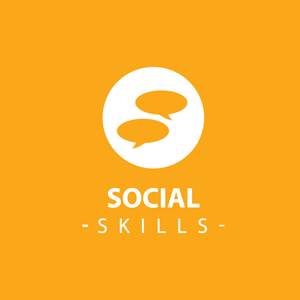You are viewing this content as a guest. You can see what titles we offer for this category, but you will not be able to view these titles.

Social Skills Programs
Social encounters are unavoidable and essential for successfully interacting with people. Individuals can be severely limited by a lack of social skills, but the good news is that these skills can be learned. The Functional Social Skills series assesses and teaches the basics of good social skills in our homes, schools, communities, and workplaces.
Here are the courses that are available in the Social Skills category.
Personal Social Skills (Work)
Personal Social Skills includes: Take Responsibility, Be Dependable, Accept Consequences, Have Self-Control, Maintain Hygiene, Grooming and Dress, Be Positive, Tell the Truth, Be Polite and Courteous, Be Assertive.
Personal Social Skills (School)
Personal Social Skills covers personal skills such as: Respect Authority Figures, Take Responsibility, Be Dependable, Accept Consequences, Be Polite and Courteous, Tell the Truth, Be Positive, Have Self-Control, and Be Assertive.
Initiating Social Skills (Work)
Initiating Social Skills includes: Greet Others/Start Conversations/Give Help, Introduce Self, Give Directions, Join Others in Groups, Apologize/Excuse Self, Give a Compliment, and more!
Initiating Social Skills (School)
Initiating Social Skills covers initiating conversation skills such as Ask Permission, Greet Others/Start Conversations/Give Help, Introduce Self, Introduce Others, Ask for Help/Assistance/Feedback, Give Directions, Join Others in Group, Apologize/Excuse Self, Give a Compliment, and Make a Complaint.
Responding Social Skills (Work)
Responding Social Skills includes: Take Responsibility, Be Dependable, Accept Consequences, Have Self-Control, Maintain Hygiene, Grooming and Dress, Be Positive, Tell the Truth, Be Polite and Courteous, Be Assertive.
Responding Social Skills (School)
Responding Social Skills covers responding conversation skills such as Listen and Respond to Others, Follow Directions, Understand the Feelings of Others, Handle Criticism, Respond to Peer Pressure, Problem Solving, Deal With an Angry Person, Manage Your Anger, and Being Embarrassed.
Communication Skills
Effective communication goes far beyond the verbal aspect of the conversation. This program teaches critical communication skills. Topics include: NON-VERBAL COMMUNICATION such as facial expressions, eye gaze, touch, gestures and physical appearance. LISTENING SKILLS such as eye contact, pay attention and don’t interrupt. VERBAL-SPEAKING such as look at person, think before speaking, and tone of voice.
Everyday Social Skills
This program provides users with a simple and direct approach to learning everyday social skill and is a must for any social skills training program. Everyday Social Skills addresses basic social skills necessary for interactions within the community, such as walking down the street, using a restroom, waiting in line, asking for directions or information and joining in a group.
Manners
Good manners go a long way in making a positive impact on the people we encounter every day. This program teaches tips for good manners when Meeting/Greeting People, Giving Help to Others, Asking for Help, Being Thoughtful and Considerate, Using Good Behavior, and Table Manners.
